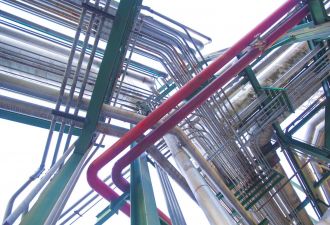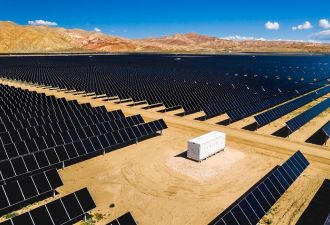Dividend Solar is looking to challenge the existing residential solar financing structure with an approach it calls "solar-ownership-as-a-service."
Third-party ownership remains the dominant model for financing a residential solar installation in the U.S., but that's changing. Direct ownership via loans (and other mechanisms like PACE) is gaining traction, because PV systems continue to get cheaper while financing options continue to improve. GTM Research is forecasting third-party ownership to peak at 68 percent of the residential PV market this year.
I spoke with the Dividend Solar's founders over lunch last week at Vesta in Redwood City, Calif. These self-described "financial structuring nerds" are looking to connect individual homeowners with new sources of large-scale capital through its direct lending platform to upset the status quo in the residential solar market.
“The solar financing market is remarkably mispriced,” said CEO Steve Michella of Dividend Solar.
"The lease/PPA model has been tremendous for the growth of solar in the U.S., but it’s becoming increasingly clear that solar ownership offers significantly greater long-term value to homeowners. The Dividend Solar [loan] combines the benefits of a lease – including energy production guarantees, system warranties and performance monitoring – with the financial upside of solar ownership." Michella continued, "Our loan solution walks, talks and looks like a lease but can provide a homeowner with significantly better economics.” Dividend Solar assures the Operations and Maintenance of the system through Next Phase Solar and employs Locus Energy as its solar monitoring and data analytics platform.
"Typical institutional investors cannot participate in residential solar," said Eric White, the startup's President, adding, "Instead of corporations looking to lower their tax bill it should be about investing behind boringly stable cash flows." We are an asset aggregator -- we allow large-scale capital to access small-scale micro-infrastructure assets that produce stable predictable cash flow -- in a market that was previously inaccessible."
"It's all about capital access," said the CEO.
The duo called the firm's product, "a bridge for large-scale, yield-seeking capital and individual homeowners." The 10-person team seem to have struck a nerve -- raising $1.5 million in a seed round for working capital as well as a fund in the "8-figures" from "a group of well known and very sophisticated Wall Street investors." The investors were initially skeptical about solar but saw the value of applying traditional financial structures to the asset class.
Michella views rooftop PV as "micro-infrastructure" and "firmly believes that distributed energy is a core component of our country's energy infrastructure future." He suggested that traditional investors in infrastructure have not had access to residential solar at a meaningful scale until now.
According to the CEO, the Dividend Solar product allows smaller solar installers to compete with the vertically integrated financiers. There are other incentives for the installer in this program which attempts to align the interests of the investor, installer and solar owner.
SolarCity and Sunrun make their money with residential solar leases and power-purchase agreements -- and business is good (see SolarCity's recent securitization). In a somewhat unenthusiastic product development cycle, both companies are testing loan products for residential PV systems. SolarCity has a 30-year loan product in pilot. Sunrun offers loans.
Sunrun's CEO Lynn Jurich suggests that high customer acquisition costs overwhelm the difference in profit between leasing or owning. When you factor in the total cost of ownership, the advantages of leasing are immediate savings and access to service without the hassle of ownership (i.e., replacing inverters, insurance, monitoring, maintenance, etc.). Jurich suggests that the cost to manage a PV system and take care of it over its entire lifetime is "thousands of dollars."
In June, SunPower partnered with Admirals Bank on a $200 million loan program for residential solar installations to be completed over the next two years. Clean Power Finance and Sungevity are also in the loan business, and Kilowatt Financial, Sungage and Mosaic are moving into the solar loan transaction business. Look for NRG to enter the fray as well. Both the SolarCity and SunEdison loans are unsecured and have a relatively low interest rate of 4.5 percent to 6.5 percent, according to our sources.
GTM Research expects the U.S. residential PV market to exceed 1 gigawatt for the first time in 2014.
Dividend's CEO said, "Our mission is to reinvent the way we invest in our energy infrastructure."
Market data is from the recently released report U.S. Residential Solar Financing 2014-2018. For more information on the report, see this page or contact Matt Casey at [email protected].



